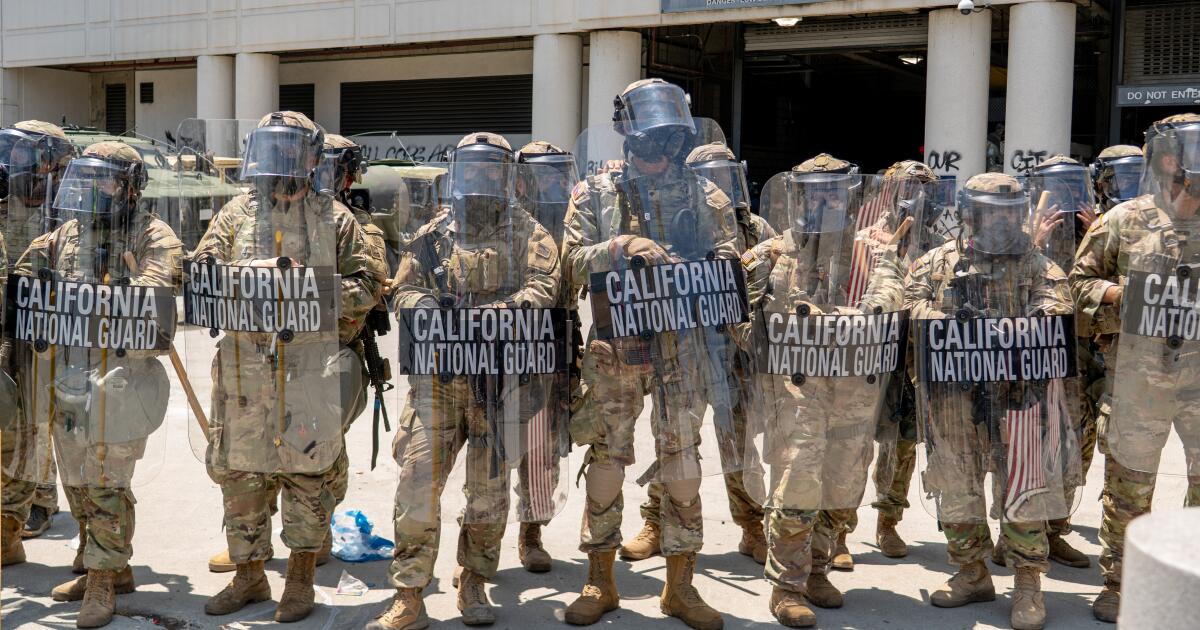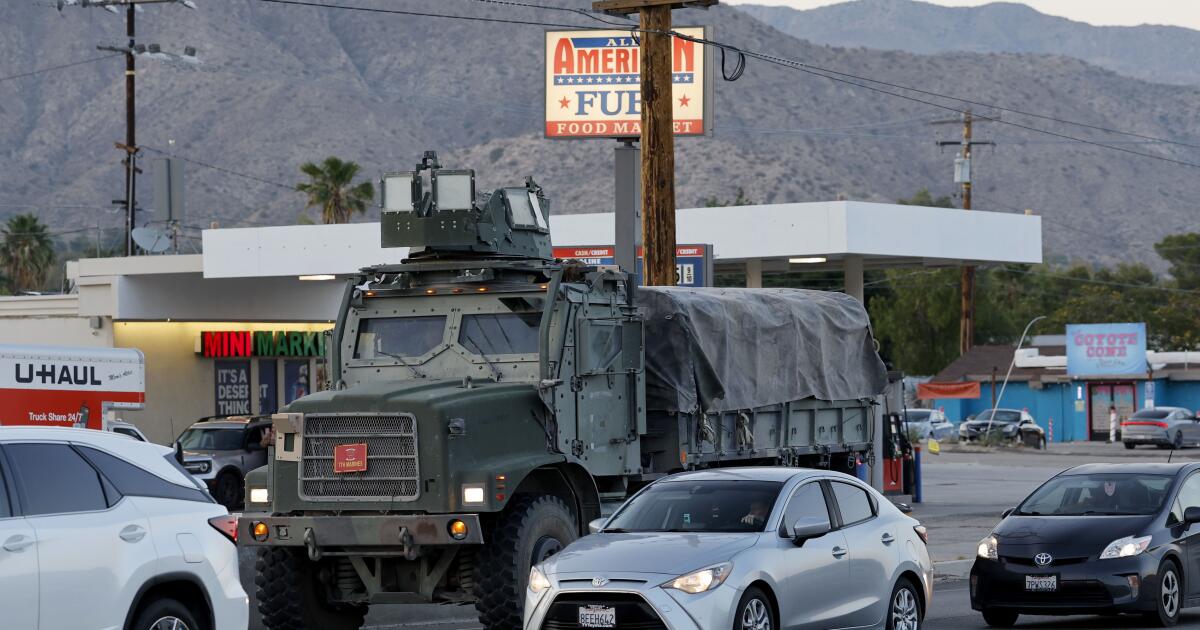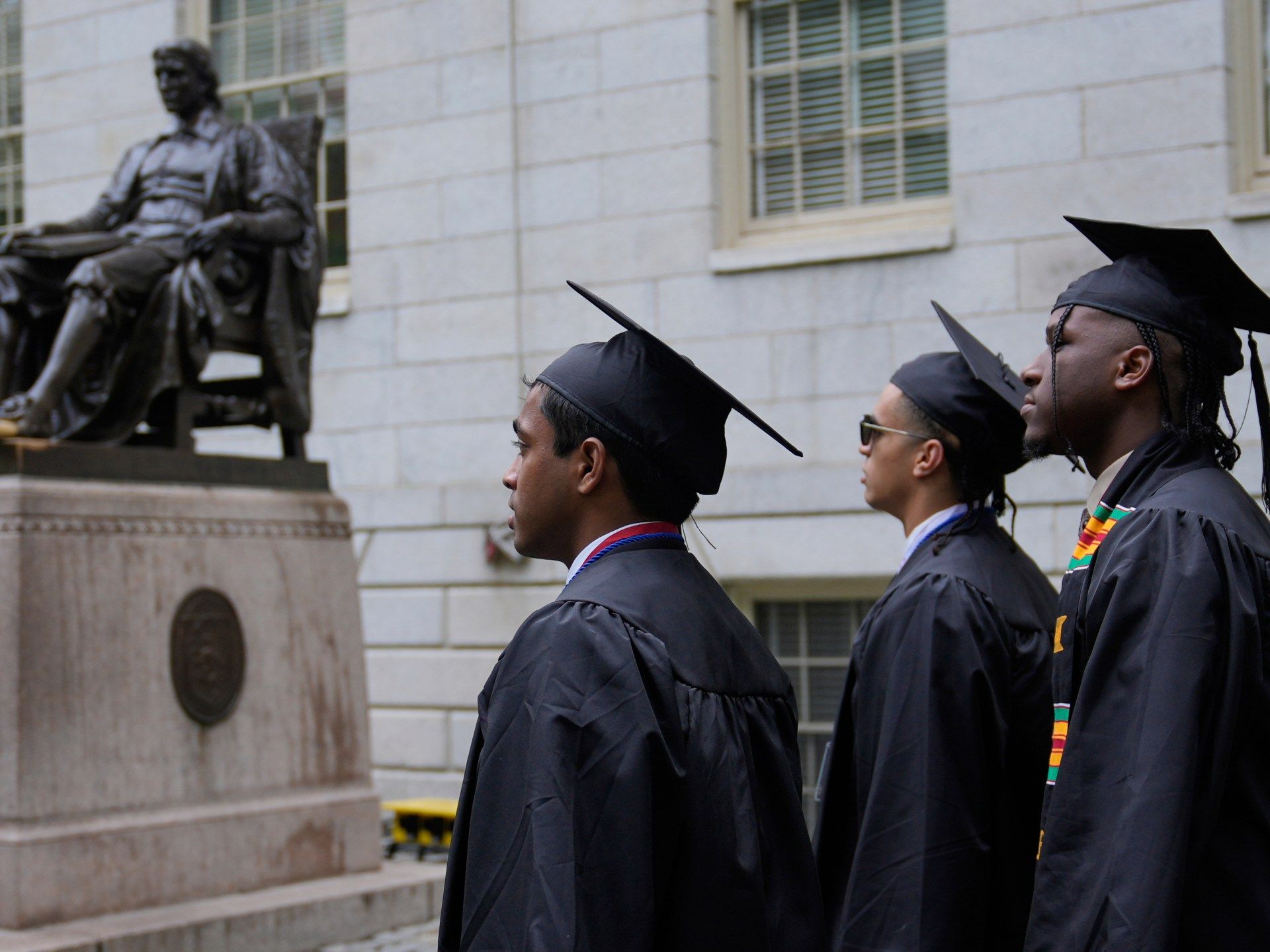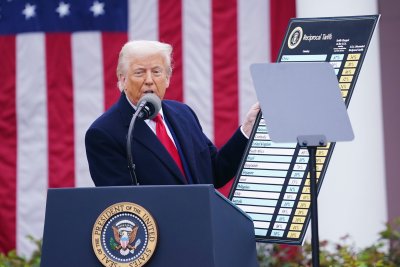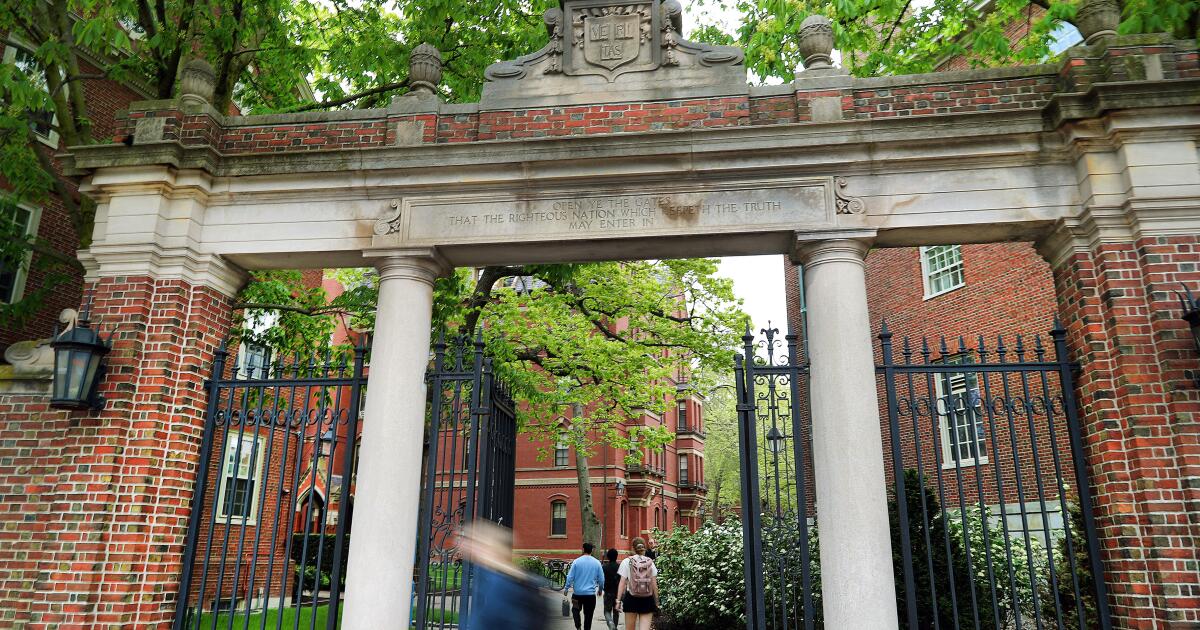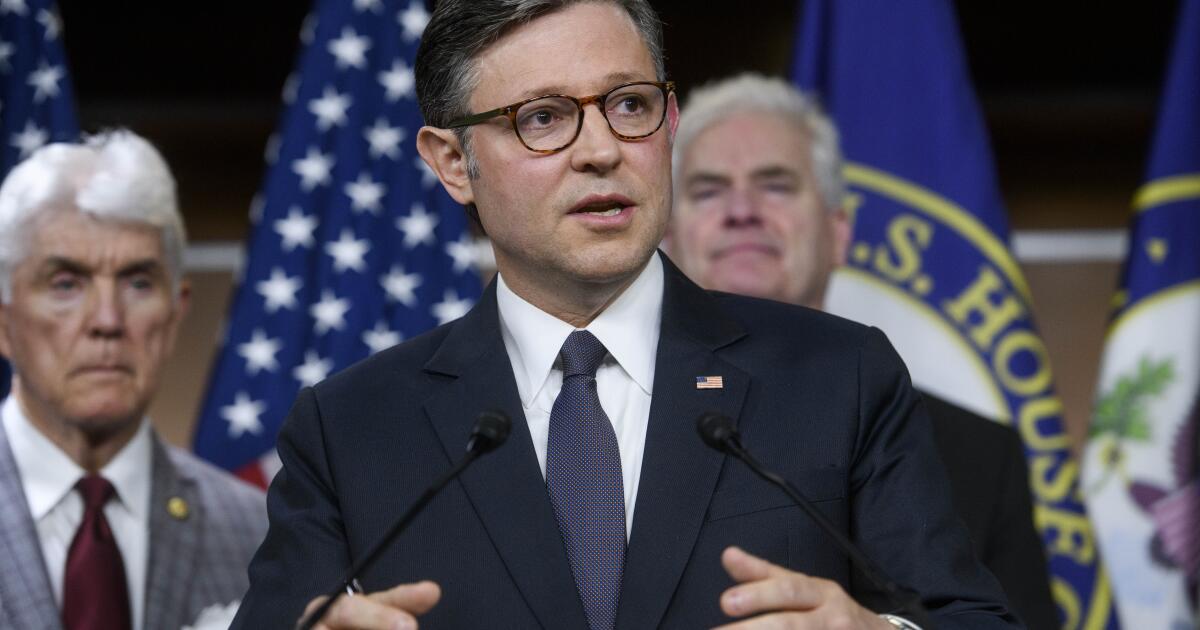Trump lawyers call California effort to block L.A. military deployment a dangerous ‘stunt’
The Trump administration argued in federal court Wednesday that any judicial intervention to curtail its deployment of military troops to Los Angeles would endanger federal immigration agents and undermine the president’s authority to keep American cities safe.
Attorneys for President Trump called California’s request Tuesday for a temporary restraining order barring those deployments a “crass political stunt endangering American lives” amid violent protests over immigration raids in the city.
If granted, they wrote, a restraining order would prevent Trump “from exercising his lawful statutory and constitutional power” as commander in chief to ensure federal facilities and personnel are protected and that the nation’s immigration laws are adequately enforced.
“There is no rioters’ veto to enforcement of federal law,” they wrote. “And the President has every right under the Constitution and by statute to call forth the National Guard and Marines to quell lawless violence directed against enforcement of federal law.”
Hindering the administration’s deployment of troops, the attorneys argued, “would be constitutionally anathema. And it would be dangerous.”
The administration was responding to California’s request Tuesday that U.S. District Judge Charles R. Breyer issue a restraining order blocking Trump’s and Defense Secretary Pete Hegseth’s deployments of thousands of state National Guard troops and hundreds of Marines to L.A.
The troops were deployed without the request or approval of Gov. Gavin Newsom or city leaders, who have called their presence unnecessary, politically motivated and a move to increase tensions on the streets, rather than reduce them.
Trump and other administration officials have defended the deployments as necessary, and in their filing Wednesday, the president’s attorneys argued that U.S. Immigration and Customs Enforcement and other federal agents had been targeted in violent attacks and that federal facilities had been damaged and defaced.
They also said that local police had acknowledged things had spun out of control and that their response had been inadequate to restore order.
Trump’s attorneys included with their opposition a written declaration from Ernesto Santacruz Jr., field office director for ICE’s enforcement and removal operations unit in Los Angeles. He described how federal agents faced violence from protesters during a raid in the Garment District, near a Home Depot store in Paramount, and at a secure ICE processing facility downtown.
Santacruz said federal immigration officials were also having their personal information spread by protesters online, and that efforts by the Los Angeles Police Department, the Los Angeles County Sheriff’s Department and the California Highway Patrol to restore order and address the threats on the street were inadequate.
“Even with the LAPD, LASD, and CHP all engaged in the ensuing law enforcement activities, I believe the safety of local federal facilities and safety of those conducting immigration enforcement operations in this area of responsibility requires additional manpower and resources,” Santacruz wrote.
The administration’s arguments, if adopted by the court, could have implications elsewhere. Similar demonstrations against immigration raids have erupted in San Francisco and Santa Ana and across the country, including in Atlanta, Boston, Chicago, Dallas, Houston, New York and Seattle. More protests were scheduled to coincide with a large military parade in Washington on Saturday.
Newsom and California Atty. Gen. Rob Bonta first filed a lawsuit over the L.A. deployments Monday, arguing they are unconstitutional under the 10th Amendment — violating state sovereignty and clear federal law limiting the use of military forces for domestic policing, including the Posse Comitatus Act.
They said Tuesday that a restraining order was necessary on an emergency basis to prevent “imminent, irreparable harm” to the state, arguing that the Trump administration intended for the military troops to “accompany federal immigration enforcement officers on raids throughout Los Angeles.”
Bonta said Trump was using military personnel as “a political pawn” to “create a confrontational situation.” Newsom said the federal government was turning the military against American citizens in a way that “threatens the very core of our democracy.” Trump, he said, was “behaving like a tyrant, not a President.”
Constitutional scholars and members of Congress also have raised concerns about the executive branch deploying military assets to quell street protests, suggesting such tactics are most commonly used by authoritarian strongmen and dictators.
A coalition of 18 other state attorneys general issued a statement Wednesday backing Bonta and California’s lawsuit, saying Trump’s decision to deploy troops without the consent of California’s leaders was “unlawful, unconstitutional, and undemocratic.”
“The federal administration should be working with local leaders to keep everyone safe, not mobilizing the military against the American people,” said the statement, which was joined by the attorneys general of Arizona, Colorado, Connecticut, Delaware, Hawaii, Illinois, Maine, Maryland, Massachusetts, Michigan, Minnesota, Nevada, New Jersey, New Mexico, New York, North Carolina, Oregon and Vermont.
In their response to California’s restraining order request Wednesday, the president’s attorneys said the military forces in L.A. would not be directly engaged in policing, and that state officials had offered zero evidence to suggest otherwise.
“Neither the National Guard nor the Marines are engaged in law enforcement. Rather, they are protecting law enforcement, consistent with longstanding practice and the inherent protective power to provide for the safety of federal property and personnel,” Trump’s attorneys wrote.
A hearing on the state’s request for a restraining order is scheduled for 1:30 p.m. Thursday. The outcome could potentially affect how federal resources are deployed at future demonstrations in L.A. and beyond, including in coming days.
The administration has said immigration raids will continue in L.A. and nationwide. Trump has warned that any protesters who show up at the military parade in Washington will be “met with heavy force.”
The parade is for the 250th anniversary of the U.S. Army, according to the administration, but critics have derided it as an authoritarian show of strongman power by Trump — whose birthday is also Saturday.
